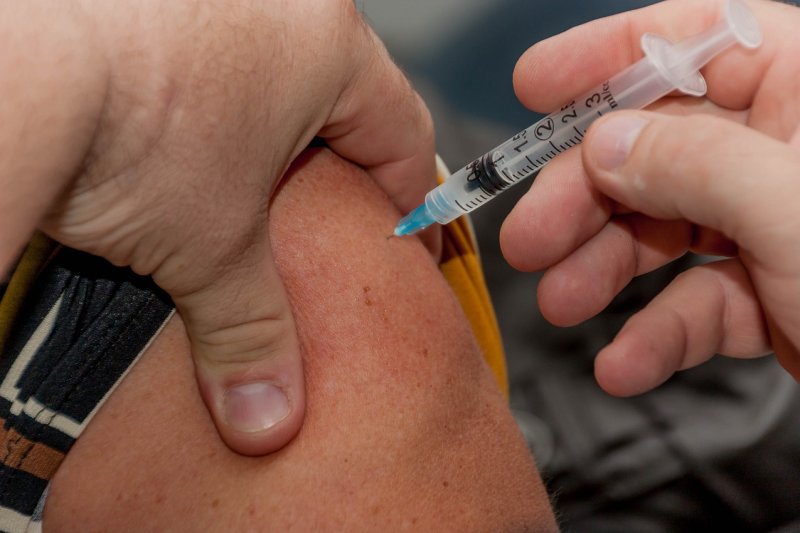Half of Americans reported a hesitation or outright refusal to take an anti-Ebola vaccine. Photo by
huntlh/Pixabay
July 18 (UPI) -- After more than 11,000 died from the Ebola outbreak in Africa, fear of infection reverberated across the globe to the United States.
Despite those concerns, half of Americans reported a hesitation or outright refusal to take an anti-Ebola vaccine, according to a study published Thursday in Heliyon.
"Facing a raising number of epidemics that create public health dangers, our findings indicate that vaccine hesitancy is associated with social factors that are independent of the perceived effectiveness of vaccines," Kent P. Schwirian, emeritus professor of Sociology at The Ohio State University and study author, said in a news release. "Willingness to take vaccination is positively associated with a generalized sense of fear, trust in the government's ability to control an outbreak of the disease, and expectation of a potential Ebola outbreak that is imminent and proximate."
The findings are based on a CNN/ORC poll that included 1,018 respondents surveyed in 2014 following the news of the Ebola outbreak that ravaged Africa. Their vaccination hesitancy stemmed from fear of the unknown effects of the drug, lack of trust in government agencies recommending the drug or lack of belief that the pathogen would actually harm them.
At the time, 80 percent of respondents thought an Ebola outbreak could hit the United States soon after Africa, but most assumed it wouldn't affect their own communities.
This reluctance to receive vaccinations for dangerous viruses has largely fueled the global anti-vaccination movement. The World Health Organization has called this anti-vaccination push one of the top ten global threats in 2019.
The concern is now so significant that scientists have called on social media companies to prevent anti-vaccination messages from spreading on their platforms.
Meanwhile, more outbreaks of diseases that could otherwise be wiped out with vaccines continue to flourish.
So far in the United States, measles outbreaks continue to plague New York and Washington states. And on Wednesday, the World Health Organization declared the Ebola outbreak in the Democratic Republic of Congo an international health emergency.
"Our life and death struggle against lethal microbes is ultimately fought at the local level. Unless local hospitals and health care personnel are prepared to fight and ready to go, we are at a major disadvantage in attempting to save lives," said Gustavo S. Mesch, a researcher at the University of Haifa in Israel and study author. "Confirming what percentage of the population would opt-in or out of vaccines, and the central role of trust in the government, would help public health officials plan their responses."















